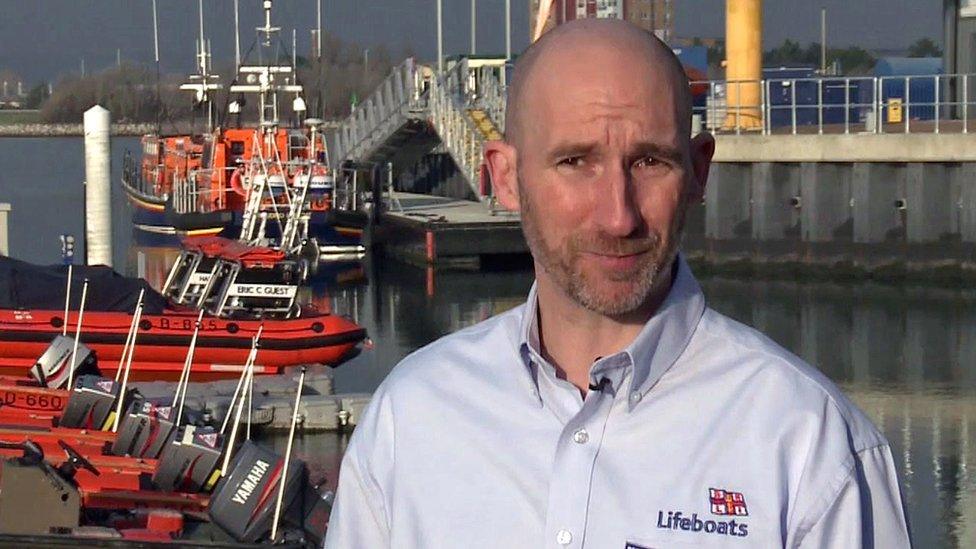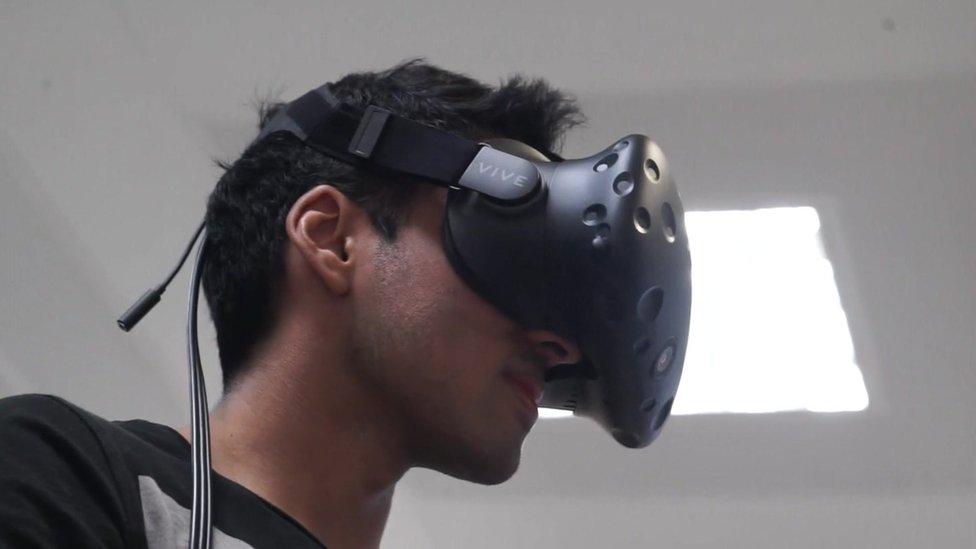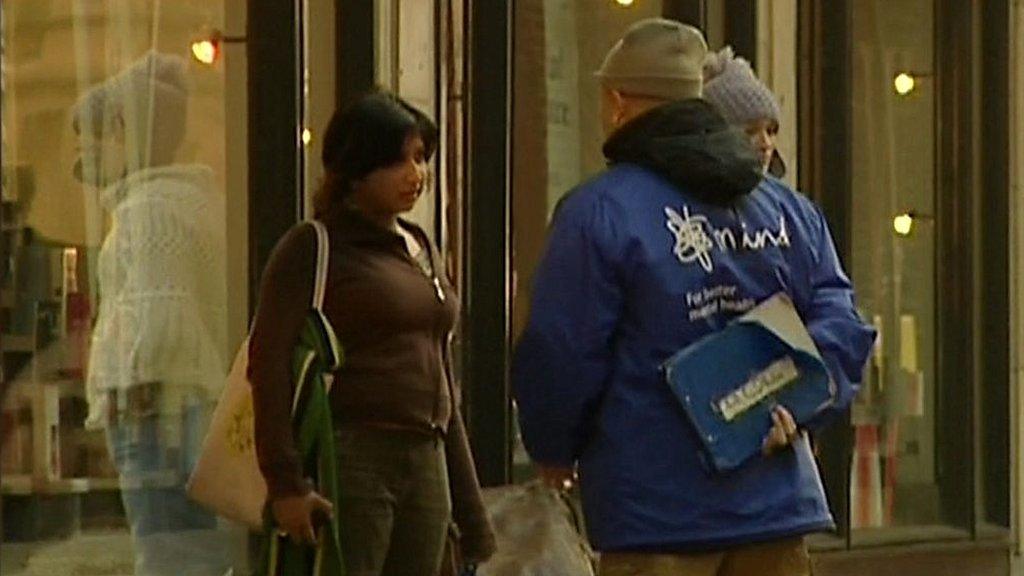New EU rules could hit UK charities' fundraising
- Published
How new EU rules could affect UK charities
Thousands of charities in the UK may have to rethink the way they raise money from the public, because of new EU regulations.
The rules will limit the way charities can contact people for donations and that could affect how much money they can raise.
The EU's new data protection regulations that come into force in May 2018 say charities, along with other organisations, must have the "express consent" of members of the public before contacting them.
This could mean that charities will have to ask everyone on their databases who has donated in the past whether they want to receive future requests for funds.
It could also mean an end to widely used methods like cold calling and mass mailings.
Losing money
"There are charities who are worried about how restrictive the rules might be," says Daniel Fluskey, head of policy and research at the Institute of Fundraising, a body which advises charities on how to raise revenue.
"We have charities saying: 'If this gets too restrictive we will lose contact with people. We won't be able to ask for money and our services will lose money.'"

The new rules "dramatically" cut the number of people the RNLI can contact, says Tim Willett
The first charity in Britain to take action to comply with the new rules is the Royal National Lifeboat Institute, or RNLI.
Based in Poole in Dorset, it runs lifeboats and volunteer crews around Britain's coastline and has an annual income of about £190m.
This year it contacted 900,000 people on its database asking if they still want the RNLI to send them requests for donations. About 400,000 said yes, so from 1 January it will approach only these people to raise funds.
"Historically, the way charities have raised income is to go to the general public, to write to them to ask for income," says Tim Willett, the RNLI's head of fundraising.
"In the future, we will only be able to do that with people who have actively opted in to the RNLI's communications strategy. That reduces the number of people quite dramatically who we have the ability to speak to.
"We think that's opened up a gap in our income streams over the next five years of £36.5m."
For the RNLI, this means a loss of income of 5% a year. Smaller charities with a smaller number of past donors could be hit much harder.

The RNLI says it could lose up to £36.5m over the next five years in potential income
But the rules could also mean the donor and not the charity must make the first approach.
"The rules are slightly grey in that area," says Daniel Fluskey. "The main thing is that whenever you are giving charities data, you have to be informed how it will be used.
"If you haven't been given a choice on how your information will be used - and given them your options - then you shouldn't be called."
The Information Commissioner is due to issue guidance in the new year on how the new rules should be interpreted.
New methods
The EU's regulations come in the wake of a series of media reports that some UK charity fundraisers had been buying up people's personal data, gleaned from the internet by specialist data-mining companies, and that they had focused particularly on elderly people who seemed to have large amounts of savings.
Some people have been pestered with requests from dozens or even hundreds of charities.
Parliament passed a new law in 2016 making charities more responsible for the methods used by their fundraising agents, and several are looking for new ways of raising money.
The RNLI has been trialling a contactless charity box, so that people who may not have any cash on them can tap their debit cards on it to make a donation.
Meet Smudge, the world's first contactless dog
Blue Cross, a charity for abandoned animals, has been raising contactless payments using a pet Labrador called Smudge, who has a contactless card reader in a coat on his body.
Meanwhile, Amnesty International has developed virtual reality versions of its films showing its relief work in war-torn Syria.
"We began noticing in 2014 a drop-off in interest in Syria," says Kristyan Benedict, Amnesty International's crisis and tactical campaigns manager.
"We wanted to find a new way of communicating the horrors on the ground. With the virtual reality experience you are getting an immersive feel of what it is like, and it has a more emotional impact.
"For people under 25 virtual reality is not strange, it's normal. They see it as the logical next step in communicating."

Amnesty International has developed virtual reality versions of its films showing relief work in Syria
"I think charities know the direction things are going in," says the Institute of Fundraising's Daniel Fluskey.
"There has been a culture shift in fundraising. People are not just doing things because they've worked in the past, but making sure they are ethical and working to the values of their organisation."
The new EU regulations - combined with a shift to using new technologies - could mean that in the future we could be getting fewer cold calls and letters from charities dropping on the doormat.
- Published23 December 2016

- Published21 May 2016
